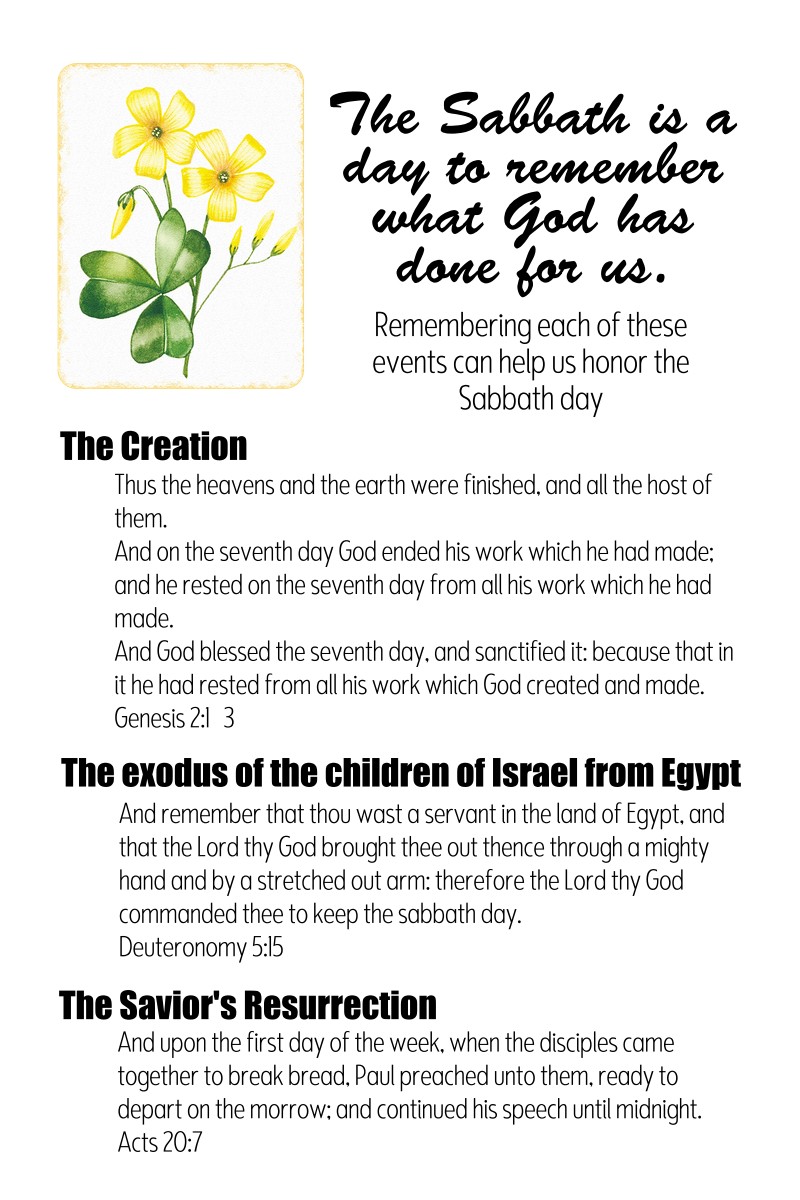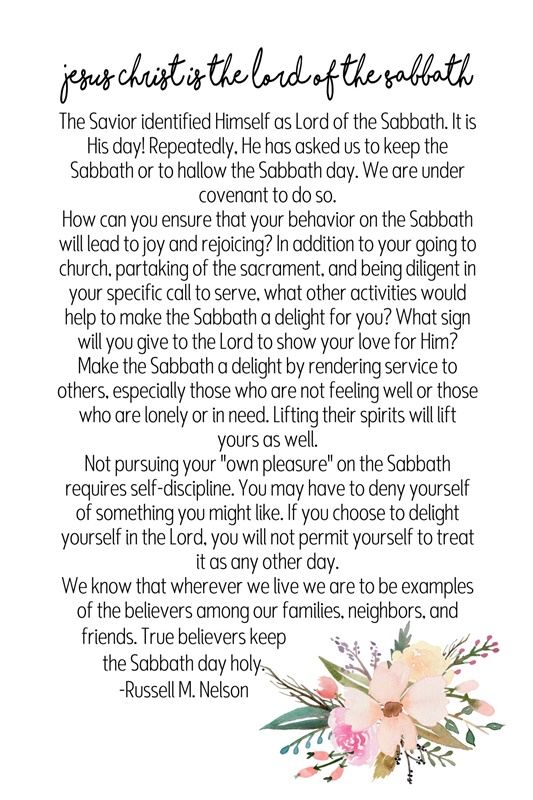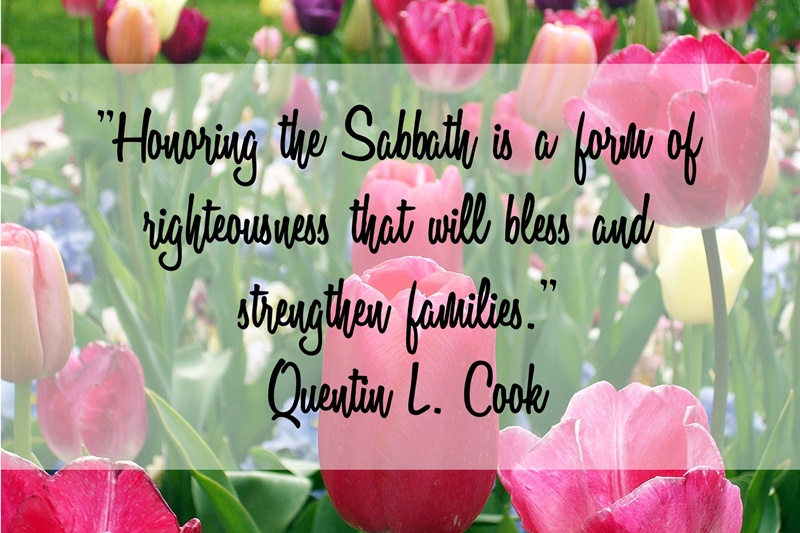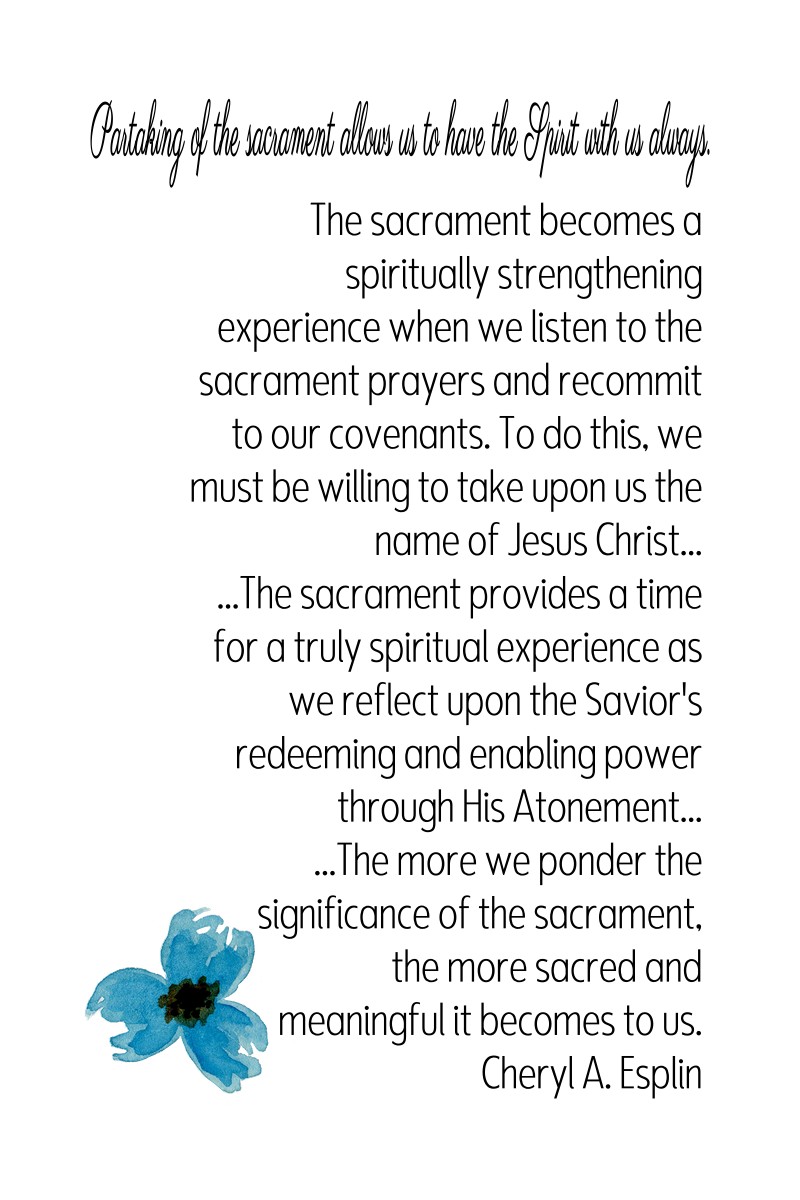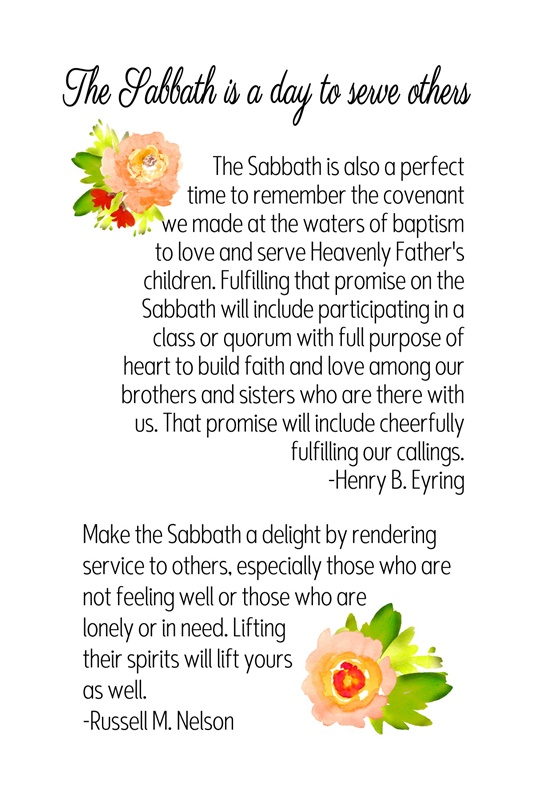On the fourth Sunday of each month, quorums, groups, and Relief Societies discuss a topic selected by the First Presidency and Quorum of the Twelve Apostles. These topics will be updated with every general conference. The topic until the next general conference will be the Sabbath day. Leaders or teachers may choose from the doctrines and learning activities suggested below, combine several of them, or create their own according to the needs of members.
Here are some other articles that might help!
Another Handout idea, just a basic Sabbath Day handout

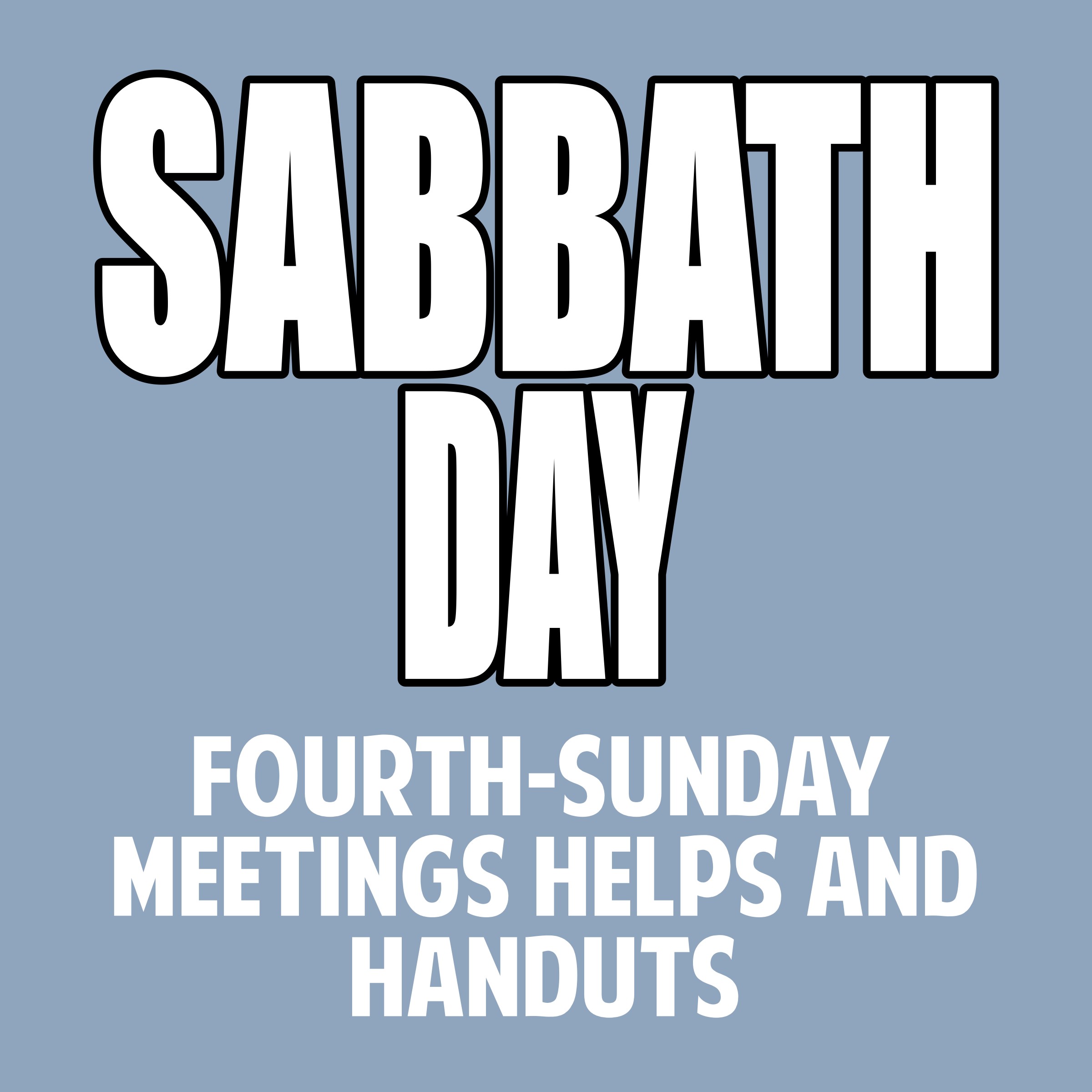
 The Sabbath is a day to remember what God has done for us.
The Sabbath is a day to remember what God has done for us.
Throughout history, God has associated certain mighty works with the Sabbath. These mighty works include the Creation (see Genesis 2:1–3), the exodus of the children of Israel from Egypt (see Deuteronomy 5:15), and the Savior’s Resurrection (see John 20:1–19; Acts 20:7). Invite members to review these passages and discuss how remembering each of these events can help us honor the Sabbath day. What are some of the mighty works that God has done for us? How can we remember these things on the Sabbath day? As applicable, invite members to discuss questions like these in their families.
Jesus Christ is the Lord of the Sabbath.
The Sabbath is also called the Lord’s day (see Revelation 1:10). Why do you think that Jesus Christ is called the Lord of the Sabbath? (see Matthew 12:8). Review together a few verses that can help inspire members to think of ways to center their Sabbath day experiences on Jesus Christ (for example, Helaman 5:12; Ether 12:41; Moroni 10:32; and D&C 6:36–37). What other verses can members share that could help them make the Sabbath more Christ-centered? What goals can we set to help us focus on the Savior throughout the Sabbath day?
This handout I took from this talk
Jesus Christ is our example of honoring the Sabbath.
During His mortal ministry, the Savior took opportunities to teach about the Sabbath day. Ask members to read the following accounts and make a list of things that Jesus did on the Sabbath and the principles that He taught: Luke 6:1–11; 13:11–17; John 5:1–20; 9:1–16. What other principles about the Sabbath do we learn from the following verses? Exodus 20:8–11; 31:12–18; Isaiah 58:13–14; and D&C 59:9–19. Invite members to share what they can do to follow the Savior’s example.
See also Russell M. Nelson, “The Sabbath Is a Delight,” Ensign or Liahona, May 2015, 129–32.
The Sabbath is a day to worship.
 Write the word worship on the board and ask class members to write other words that are related next to it. Then make three columns with the words before, during, and after at the top of each column. What can we do before, during, and after church to worship the Lord on His holy day? Class members could read together Mosiah 18:17–29and Moroni 6 for ideas. Invite members to ponder how their attitudes and actions on the Sabbath day are helping them worship the Lord on that day (see Exodus 31:16–17). What can we do to help improve the worship experience our families and ward members are having during Church meetings?
Write the word worship on the board and ask class members to write other words that are related next to it. Then make three columns with the words before, during, and after at the top of each column. What can we do before, during, and after church to worship the Lord on His holy day? Class members could read together Mosiah 18:17–29and Moroni 6 for ideas. Invite members to ponder how their attitudes and actions on the Sabbath day are helping them worship the Lord on that day (see Exodus 31:16–17). What can we do to help improve the worship experience our families and ward members are having during Church meetings?
Partaking of the sacrament allows us to have the Spirit with us always.
Write the following question on the board: How is the sacrament affecting your life? To answer this question, invite members to work in pairs to select and discuss one phrase from the sacrament prayers in Doctrine and Covenants 20:77, 79 and the counsel in Doctrine and Covenants 59:9. Give each pair time to find scriptures that help them better understand their phrase and discuss how they would answer the question on the board. You might also invite class members to choose favorite sacrament hymns and sing them together.
See also Cheryl A. Esplin, “The Sacrament—a Renewal for the Soul,” Ensign or Liahona, Nov. 2014, 12–14.
What can we learn about serving others on the Sabbath from the ways the Savior served and blessed those around Him? Encourage members to review and discuss Matthew 9:10–13; Luke 19:1–9; John 11:32–46; 13:1–5, 12–17; and 3 Nephi 17:5–10. Ask members to think about these scriptures as they consider how they can serve on the Sabbath. For example, they could serve family members, reach out to individuals and families they minister to as home and visiting teachers, work on family history, visit the sick, or share the gospel. Perhaps members could have a family council to plan ways they can serve others on the Sabbath

